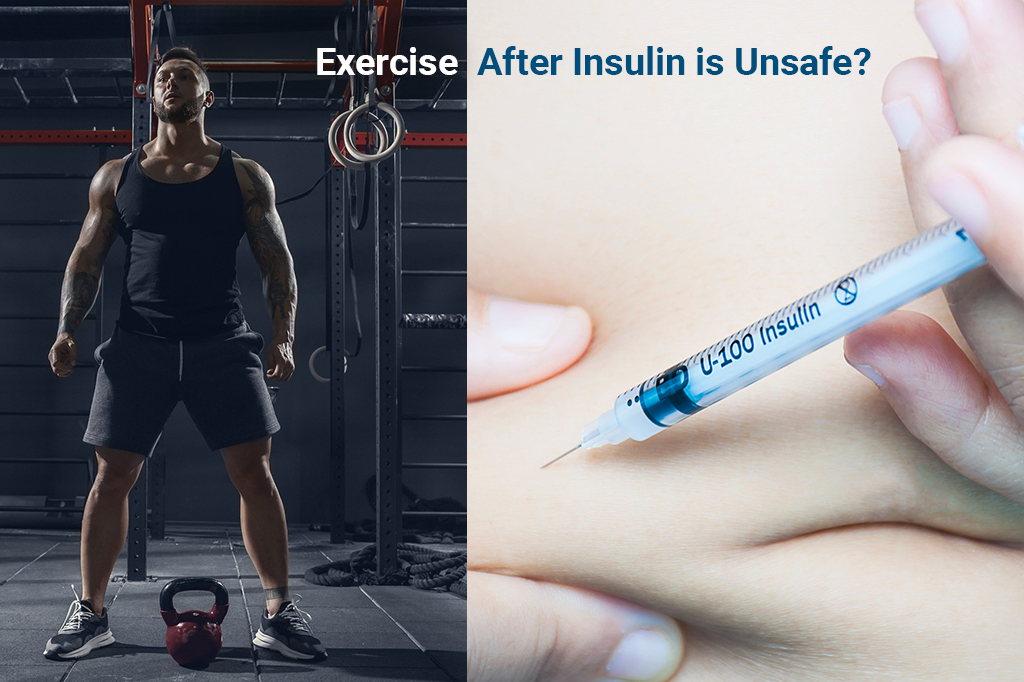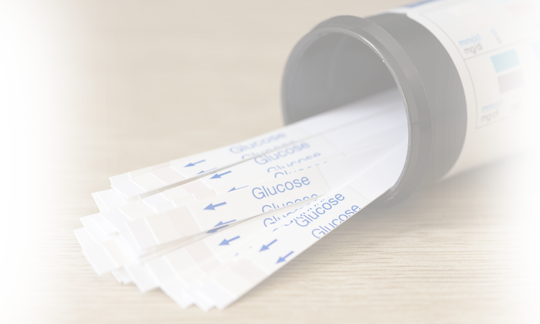
27 August 2021
Exercise and diabetes are two things that should go hand in hand they seem incompatible more often. Most people get confused about what exercise should they do. What things they should keep in mind because of being diabetic?
Doing exercise every day is a must to maintain heart health as well as to keep insulin resistance down. Here, though it also comes with some risks as well.
People with diabetes have to always struggle to maintain blood sugar under control. Experts say that considering the timing of workouts after meals is quite significant. Exercising after having your food comes up with positive effects on blood sugar. If you exercise sophisticated, it can help you to cut the risk of heart disease and an active lifestyle. Let’s understand it in a detailed manner
A Brief Introduction To Insulin
Do you know how insulin works?
To put it in simple words, it plays a major role to help your body turn food into energy for beginners.
If you are a diabetic then the same would not be happening in your body. It means your body would not be producing insulin.
Insulin is regarded as a hormone created by your pancreas responsible to control the amount of glucose in your bloodstream at any available moment. It also makes it possible to store glucose in your other body parts such as fat, liver, and muscles. Generally, it is known for regulating your body’s metabolism of carbohydrates, proteins, and fats. Doesn’t it look important?
If insulin does not work properly, your body probably would not be able to store glucose in your muscles or liver. Moreover, it would not make any fat too. But, the fat breaks down as it starts breaking down and produces other things. If the level of these acids goes quite high the imbalance can trigger. When you consume anything, your blood glucose level starts going high. It leads a typical individual’s pancreas to release insulin so that sugar could easily be stored in the form of energy to use later on. Without this pancreatic ability, a person’s blood sugar will truly go high with diabetes irrespective of the type. If you have been contemplating exercise with type 2 diabetics then you should keep in mind though.
Importance of Insulin Levels in Exercise Safety
It is quite important to understand the relation between blood sugar and exercise. The effect of exercise on your blood sugar will truly be depending on how long you remain active as well as other important factors. Physical activity can reduce your blood sugar up to 24 hours or more after getting done with your workout making your body quite sensitive to insulin.
To understand how your blood sugar reacts to exercise, you need to check the sugar level quite frequently. You may sell test strips online if you have extra to help others. You can also go with these results to your blood sugar to understand how your body reacts to different activities. Understanding this thing will truly help you not let your blood sugar go extremely high or low.
Insulin’s Role in Natural Endogenous Glucose Release
Do you know what happens when an individual without diabetes lacks food or does a lot of physical work? It leads to crashing their blood sugar. Their body releases glucose into the bloodstream.
To understand all this, we need to analyze the insulin levels. If you are completely fit and do not have diabetes then your body will stop producing insulin upon experiencing a drop in blood glucose.
People with diabetes do not get help from the insulin-drop glucose-increase feedback. To put in simple words, dropping blood sugar means you already hold enough insulin on board. Your body would not receive a signal to release glucose from the liver until a drop in blood insulin level is received.
When you exercise, your liver will receive a signal itself to release glucose. But this signal does not work in people with diabetes. It means the more insulin on board, the more glucose will be released into your body irrespective of the fact if you do exercise or sit simply on the couch.
Exercising After Taking Insulin Is Higher Risk
Doing exercise just after having an insulin bolus can enhance the risk of dangerous hypoglycemia in comparison to working out when insulin levels are low. Having low insulin while starting a workout, your body can react more naturally to exercise releasing glucose to sustain normal blood sugars.
Here, it is important to mention that the timing of exercise is quite important to understand the role of your body’s responses. You probably have less chance to experience low blood sugar in case you do exercise before breakfast especially before consuming any insulin. This is an important exercise with type 1 diabetics’ tips to keep in mind.
During that time, you would be having only your basal insulin on board, therefore; your circulating levels would probably be low but generally hold higher levels of cortisol. It’s a hormone responsible for increasing your insulin resistance to compensate.
If you do exercise after getting your breakfast and quick-acting insulin injection, your insulin probably affects whether you find it low since the dose will affect your level of circulating insulin.
Physical Activity is regarded as being one of the major causes of hypoglycemia in folk going with strictly controlled diabetes. Doing exercise following low insulin levels is quite a normal physiological response. To decrease yours, you probably need to lower your pre-meal insulin doses.
How well you would be doing also depends on how much insulin you probably are having in your system while doing exercise sessions. It is regarded as an important factor when it comes to diabetics’ safety. You probably end up accumulating less muscle glycogen after exercise in case you do not hold insulin or your insulin action is diminished. Moreover, your muscle can truly take up glucose as well as restore glycogen generally without insulin for the first hour following an intense exercise. After getting done with, you probably require ideal insulin available to go ahead and stimulate glucose uptake and glycogen storage.
If you are done with accumulating the required glycogen, the next time you exercise your body probably depends on greater use of fat which would be lowering your ability to exercise. And it probably causes you to get tired quickly in case you have low glycogen levels because you have to take up more blood glucose. You need to put effort into keeping your blood sugar closer to normal once you are done with your everyday exercise schedule since it also helps you to restore glycogen in an ideal manner compared to when your sugars go high at that time. It means you would require having some insulin after exercise for any carbohydrate which you eat.
Conclusion
Moderate exercise is pretty much good. It helps to go with an active lifestyle. It means your blood glucose level will remain normal or moderately elevated. People with diabetes can also live healthy and peaceful lives. All you need to do is take care of your body system.
Consult with your doctor to understand which exercise and what more things you need to be careful of.
Popular Post
The motto of Omnipod is simplifying life with diab...
For diabetics, it is always challenging to get acc...
When it comes to quality diabetes test strips, One...
Archives
- December 2021 (3)
- November 2021 (1)
- September 2021 (2)
- August 2021 (5)
- July 2021 (2)
- September 2020 (3)





